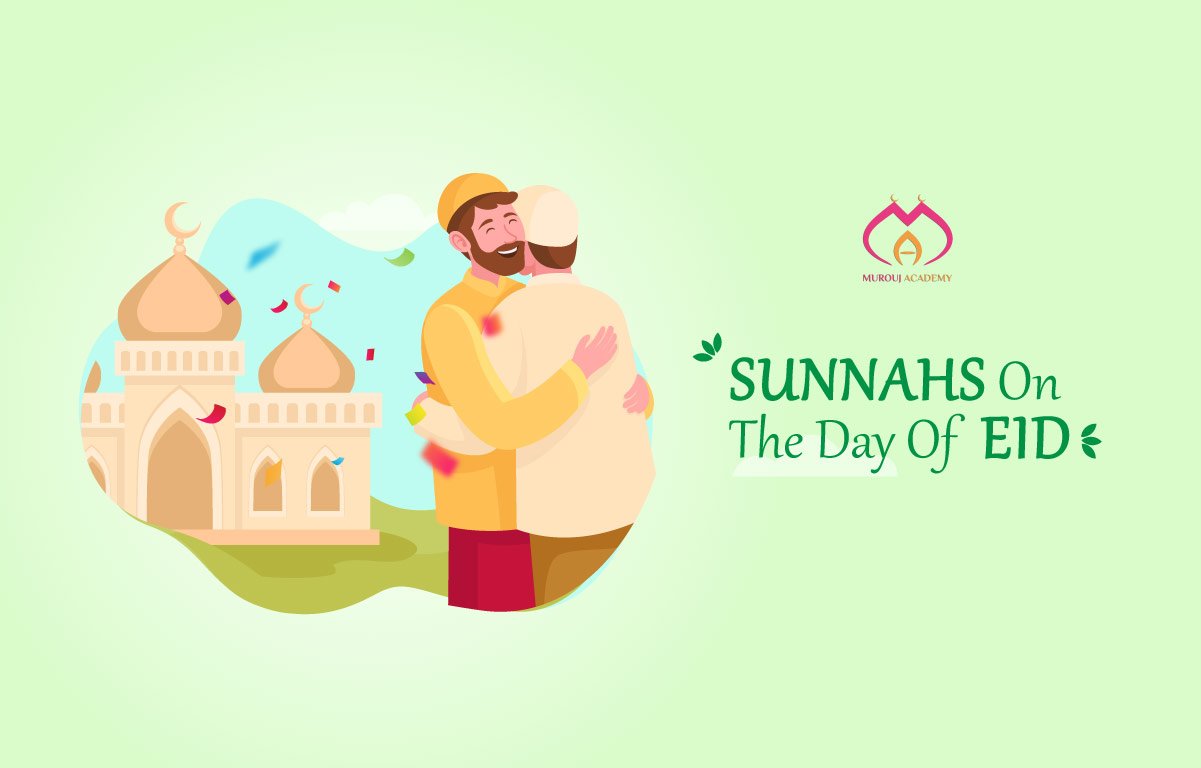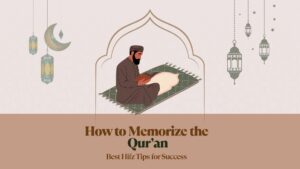God Almighty prescribed for His faithful servants the two feasts. Because it brings joy and happiness to them, and it is indicated that before the advent of Islam, people had several customs and traditions that they rejoiced in, and when Islam came, it approved them for the good ones, and prohibited them from anything other than that, and made the holidays controlled by the controls of the Sharia. No one may exceed it.
Muslims have many Sunnahs that it is recommended to do on the day of Eid, including the following:
- Eating on the day of Eid, and this year differs between Eid al-Fitr and Eid al-Adha; On Eid al-Fitr, the Sunnah is to eat before going out to the Eid prayer, and eating dates is an odd number. On Eid al-Adha, eating is after the prayer. For a Muslim to eat from his sacrifice if sacrificed; When it was reported on the authority of the companion Buraydah Al-Aslami about the act of the Prophet – may God’s prayers and peace be upon him -, he said: (The Prophet, may God’s prayers and peace be upon him, did not go out on the day of Eid-al-Fitr until he had eaten, and on the day of Sacrifice he did not eat until he returned and ate from his forget-me-not).
- Going to the Eid prayer hall from one way and returning home from another way; For the hadith of Ibn Omar about the Prophet – upon him be blessings and peace – doing that when he went out to the Eid prayer, when he said: (The Messenger of God, may God’s prayers and peace be upon him, used to go out to the two feasts from one way and return from another way).
- Slow down after praying to the imam; This is in order to greet people and check their conditions. For the act of the Prophet – may God’s prayers and peace be upon him – as stated in the hadith: (I saw the Messenger of God, may God’s prayers and peace be upon him, when he finished the two feasts, he came in the middle of the chapel, so he stood up, and looked at the people how they were leaving and how you named them, then he would stand for an hour and then leave).
- Performing the Eid prayer only and not performing any prayer before or after it. As there is no Eid Sunnah before or after it if it is outside the mosque, but if the Eid prayer is inside the mosque; It is permissible for a Muslim to salute the mosque; For the act of the Prophet – upon him be peace and blessings – which was reported on the authority of Abdullah bin Abbas, and he said: (The Prophet, may God’s prayers and peace be upon him, prayed two rak’ahs on the day of Al-Fitr, and he did not pray before or after it).
- Washing for the feast; for the Companions – may God be pleased with them -؛ Ibn Omar did not go to the prayer place until he washed, and it was Sunnah to put on perfume and use the toothpick.
- Wearing the most beautiful and best clothes; For the act of Ibn Omar – may God be pleased with him -؛ He used to wear the most beautiful thing he had on the day of Eid.
- Going to the prayer place walking in peace and dignity; The Prophet – upon him be peace and blessings – used to go to the prayer place walking, and return to his house walking, and Ibn Omar mentioned that, and he said: (The Messenger of God, may God’s prayers and peace be upon him, used to go out to the feast walking and return walking).
- Performing the Eid prayer in chapels outside the mosque, so do not pray in the mosque except for the need; This is due to the act of the Prophet – may God bless him and grant him peace – on the two Eids. He used to pray them in the chapel outside the mosque. Abu Saeed Al-Khudri said: (The Messenger of God, may God’s prayers and peace be upon him, used to go out on the day of Al-Fitr and Al-Adha to the chapel, and the first thing he would start with was the prayer).
- Early to the prayer place for the congregation and delaying until the beginning of the prayer time for the imam; The early time is after the Fajr prayer; This is confirmed by the act of the Prophet – may God bless him and grant him peace -; He used to delay going out to the chapel until it was time for the Eid prayer. Based on the hadeeth mentioned in the previous point.
- Takbeer and raising the voice with it on the way to the prayer place; And that is due to the act of the Prophet – upon him be peace and blessings be upon him -؛ He used to say Allahu Akbar when he left his house until he reached the prayer place and prayed. As evidenced by what was reported on the authority of Muhammad al-Zuhri; He said: (The Messenger of God used to go out on the day of al-Fitr and say takbeer until he came to the prayer place, and until he finished the prayer, and when he finished the prayer, he would cut off the takbeer).





